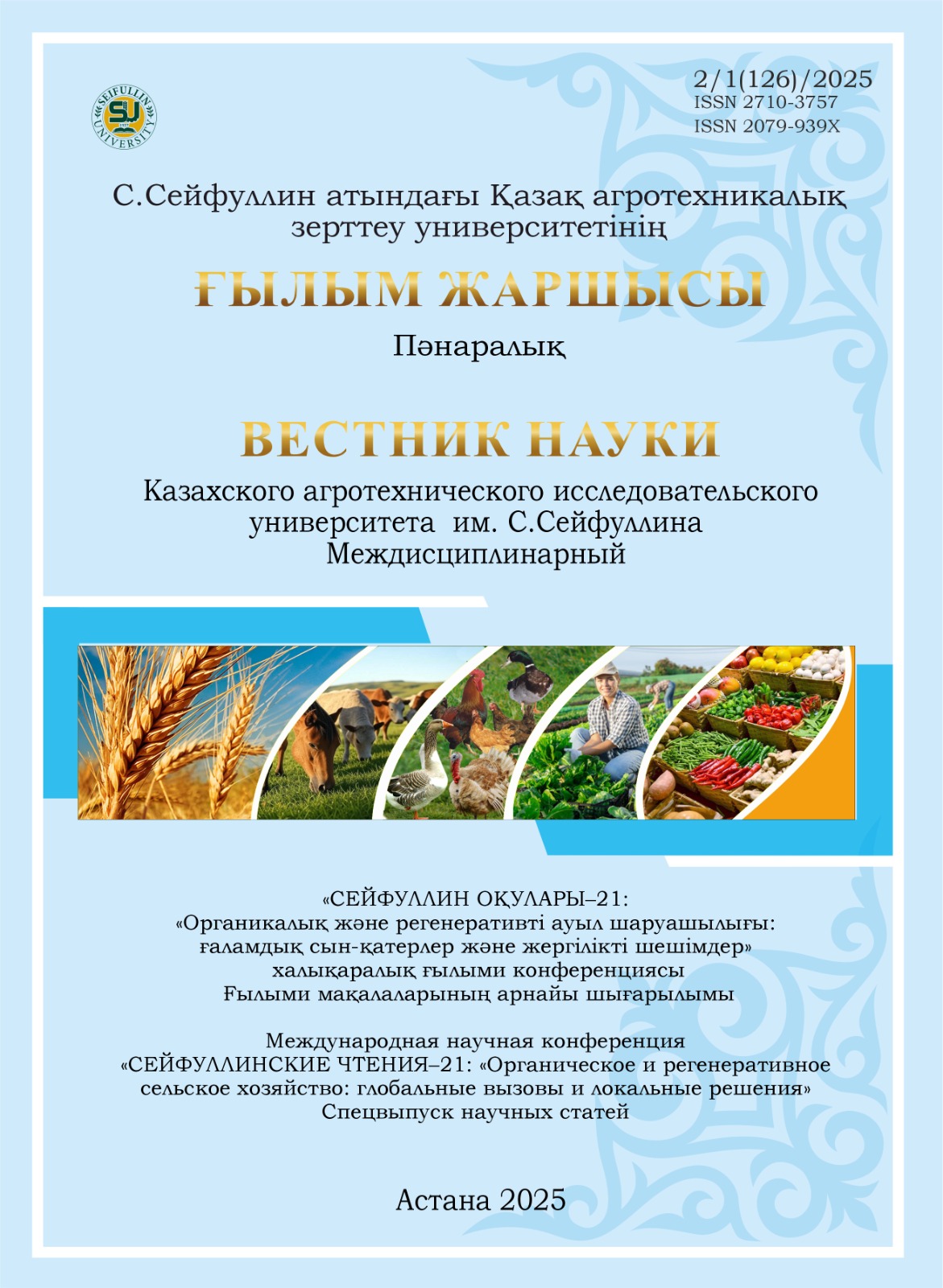Pasture-based livestock technology equipped with digital elements in organic meat production
DOI:
https://doi.org/10.51452/kazatu.2025.2/1(126).1948Keywords:
organic animal husbandry; Kazakh white-headed breed; body condition scoring; pastures; processing; automation.Abstract
Background and Aim. The advancement of digital technologies – including sensors, monitoring systems, data analysis, and automation – within the field of organic meat production has created new opportunities for the effective management of livestock, particularly in pasture-based systems. These innovative solutions play a significant role in enhancing the economic efficiency of organic production. The aim of this study is to substantiate the improvement of pasture system efficiency through the implementation of digital technologies in livestock farming, as well as to establish the theoretical foundations for organic product development.
Materials and Мethods. The study was conducted on the basis of «North Kazakhstan Agricultural Experimental Station» LLP in Akkaiyn District, North Kazakhstan region. The objects are pastures of the steppe zone and cattle of the Kazakh white-headed breed. 70 hectares of pasture were divided into 7 paddocks (10 hectares each) and arranged in a petal-shaped structure. The irrigation system was centralized and an RFID-based automatic platform was used to record the arrival of animals to the watershed. Data on the time, duration of drinking water and veterinary treatment were recorded. The quality of pastures was determined by assessing the body condition score (BCS) of cows and heifers on a 9-point scale.
Results. 35 plant species were identified in the pasture, the diversity of which was high during the summer. The use of paddocks in two grazing cycles ensured the stability of the vegetation cover. The BCS score was in the range of 5-7 points for most; this is dependent on the quality of pasture feed. Monitoring the water consumption of animals showed a peak of activity in the morning (05:00- 09:00), noon (14:00 15:00) and evening (19:00), which indicates the preservation of water balance in hot conditions of air temperature the use of phytopreparations based on Nepeta cataria essential oils showed 100% effectiveness in protecting against ectoparasites in the first two weeks, the effect lasts 15-20 days. The results of the study confirm the effectiveness of the proposed pasture management system and technologies for improving livestock products.
Conclusion. The study proved the effectiveness of automated technologies in pasture management, their importance in improving animal health and productivity, as well as the potential for rational use of water and feed resources.

